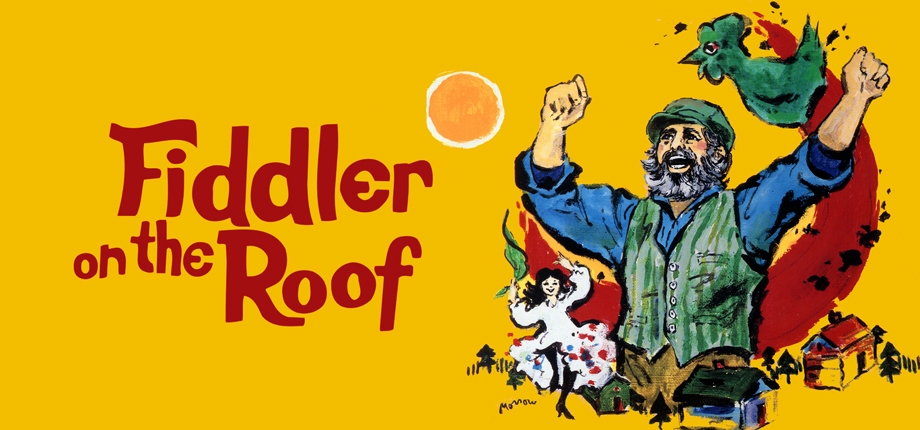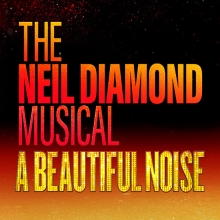Filichia Features: FIDDLER ON THE ROOF -- in Yiddish, Yet!

Filichia Features: FIDDLER ON THE ROOF -- in Yiddish, Yet!
Fiddler on the Roof has returned to one of its native languages.
Right now at the National Yiddish Theatre Folksbiene, the Tony-winning classic is being performed in Yiddish.
There was a time when true-blue-and-white Israelis would have been aghast at the thought. When Fiddler first opened in 1964, the state of Israel was only 16 years old and Hebrew was now the language of choice. Yiddish seemed retro and reminiscent of harder times.
"It's our national language of the past," opined many. They felt a new country needed a fresh start with a different language.
New literature was deemed necessary, too. In 1964, when Israel's leading theatrical producer heard from a scout who raved about a pre-Broadway tryout performance of Fiddler, he was interested-- until he heard that the musical was based on those old stories by Sholom Aleichem. Still, he did agree to send a second scout.
And that scout turned out to be Topol. He didn't like it. (Fiddler film fans will see much irony in that)
Topol would change his mind after a second viewing, which doesn't mean that Joseph Stein's book, Jerry Bock's music and Sheldon Harnick's lyrics aren't immediately accessible. No -- on Topol's initial visit, star Zero Mostel was giving one of his famous stray-from-the-text, anything-for-a-laugh performances. (Note to all future Tevyes: Don't Try This at Home)
Wonder of Wonders (as Alisa Solomon's magnificent study of Fiddler is called) when Topol gave the show a second chance, Mostel was in the mood to play it straight. As a result, Topol went straight to the phone and told the producer to do it - in Hebrew.
The National Yiddish Theatre Folksbiene (pronounced Folks-BEE-na) feels differently. Partly in a nod to the Yiddish theaters that once proliferated on Second Avenue, it celebrates the language.
This new production started because of Christopher Massimine, whose acting resume includes Broadway appearances: Chip in Beauty and the Beast , Gavroche in Les Miserables and Young Tommy in The Who's Tommy.
Now, Massimine is Folksbiene's CEO and executive producer. In 2014, he oversaw at Town Hall a Fiddler celebration to mark the 50 th anniversary of the show's Broadway debut. Afterward, he, Zalmen Mlotek, the troupe's' musical director and Bryna Wasserman, then Folksbiene's executive director, had the idea of doing the classic musical in Yiddish.
Says Massimine, "Word of this got to Yael Friedman, the daughter of the man who translated the show into Yiddish for Israel -- where it didn't do as well as the Hebrew version," he admits. "That didn't discourage us in the least."
Part of the fun for non-Yiddish-speaking Fiddler fans will be reading the translated supertitles that will be both in English and in Russian. "Some lyrics have been changed," says Massimine. "'Tradition' becomes 'The Torah' and 'If I Were a Rich Man' will be 'If I Were a Rothschild.'" (In fact, that's the actual title of one Sholom Aleichem story.)
Two characters will speak in both Yiddish and Russian: Fyedka, the budding Communist, and The Constable, who occasionally deigns to speak Tevye's language when dealing with him.
Both Harnick and Hal Prince, the original producer, have acted as consultants on the project. And someone whose career was made by a Hal Prince show is directing: Joel Grey, the original Emcee in Cabaret.
Says Massimine, "We thought of Joel as a director because we knew he was branching out into it. Don't forget that he got a Tony nomination as Best Director for co-staging The Normal Heart."
Massimine didn't have to ask Grey, for as soon as the Oscar- and Tony-winner heard of the project, he contacted Folksbiene. "Joel's father was Mickey Katz, an esteemed Jewish comedian and musician who made English-Yiddish records," says Massimine. "So Joel knew the territory."
Grey has cast 26 performers, virtually all of whom have learned to speak Yiddish -- phonetically.
"Fiddler is a very specific show," Massimine adds, "And yet, I've found that the more specific a show is, the more relatable and universal it becomes."
For that matter, Massimine is a Gentile who was born in Venice. "But I do speak a bissel of Yiddish," he says with a smile.
He certainly knows one of the most famous and oft-told stories about Fiddler -- that when the show was preparing its Tokyo premiere, a local producer asked Stein "how the show could have been a hit in America when it was 'so Japanese.'"
So, it should be right at home in Yiddish, don't you think?
You may e-mail Peter at pfilichia@aol.com. Check out his weekly column each Monday at www.broadwayselect.com and Tuesday at www.masterworksbroadway.com . His book, The Great Parade: Broadway's Astonishing, Never-To-Be Forgotten 1963-1964 Season is now available at www.amazon.com.

























